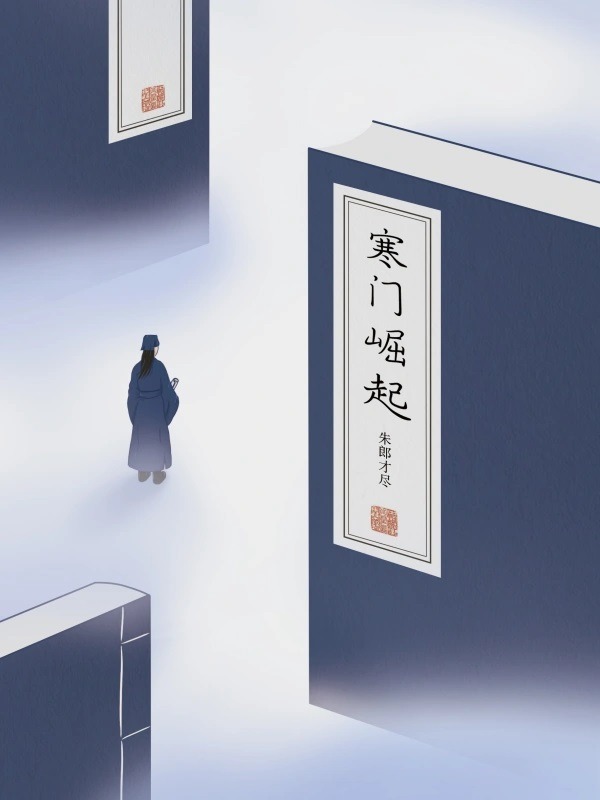
Kays Translations
Just another Isekai Lover~
Chapter 277: May Your Wishes Come True
The second round of the imperial examination wasn’t difficult. Official-style writing was something Zhu Ping’an had long since mastered. After the test papers were handed out, Zhu Ping’an completed all the questions—except for the “Qingci” (sacred petition)—within a day and a half.
By the afternoon of the following day, only the Qingci question remained.
Anticipating that the Qingci would be a key focus of the examiners, Zhu Ping’an gave it enough attention and reserved plenty of time for it.
The Qingci question was simple—just one line with eight characters: “Pray for your wish, compose a Qingci.”
What does this question mean?
To understand it, one must first briefly explain what a Qingci is.
Qingci, also written as “Qingci” (using different characters), is a type of written petition used by Daoist priests to communicate with the celestial court or summon divine generals. It’s called Qingci because it is written in vermilion ink on green vine paper—also known as “green script.” In ancient times, due to the multitude of deities, there was much to report to the heavens. Eventually, scholars began composing Qingci on behalf of others. Over time, Qingci evolved into a literary form, and Daoists gradually lost their monopoly over it.
In other words, a Qingci is a memorial or blessing written to deities.
“Pray for your wish, compose a Qingci.”
This question simply means: write a Qingci expressing your wish. Whatever you want to pray for, write it down. It’s an open-ended prompt. In modern terms, it’s like the elementary school essay “My Wish,” or the English test question in high school or university, “I have a dream.”
Although the topic is simple, it’s not easy to write.
That’s because Qingci are not easy to write. They require ornate language to express reverence and sincerity toward the celestial beings. They take the form of poems or fu-style prose. Most commonly, Qingci are written in parallel prose, using balanced phrases in four or six-character structures, with elegant diction. Generally, Qingci are either poetic or written in fu style. The fu style is more common, as its flowery prose better suits the genre.
Upon seeing the question, 90% of the examinees probably cursed under their breath. They hadn’t prepared to write a Qingci. But fortunately, most were good at writing the eight-legged essay style. If you’re good at that, whether it’s poetry or fu, you can manage. Although Qingci is hard to write, if you rack your brain and squeeze every drop of creativity, you can come up with something—though for most first-timers, the quality is questionable.
Many examinees tore their hair out, struggling with every word and sentence.
Compared to them, Zhu Ping’an was far more relaxed and cheerful.
Writing a Qingci wasn’t a problem. Writing a good Qingci wasn’t a problem either. The only thing Zhu Ping’an was considering was how to make his Qingci stand out.
Emperor Jiajing was a devoted Daoist. He spent his days in the palace cultivating immortality and frequently held Daoist rituals. Qingci were in constant demand. With the emperor so fond of it, officials naturally followed suit. Ministers vied to present their own green scrolls of Qingci, participating in this grand tradition. Qingci became the most popular and fashionable literary form during the Jiajing era. Several people were promoted to Grand Councilor just because of how well they wrote Qingci. The current chief minister, Yan Song, was a master of the art. His son was even better than he was.
With so many people writing Qingci, making yours stand out was no easy task.
At the moment, Emperor Jiajing’s favorite Qingci was one submitted by imperial scholar Yuan Wei. It was a couplet written in fu style:
“The black tortoise of Luo River first presents its omen.
Nine is the number of yin, nine the number of yang—
nine times nine is eighty-one, and thus the Dao is complete.
The Dao unites with the Celestial Worthy of Primordial Beginning,
and a single sincerity moves the divine.
The red phoenixes of Mount Qi show double signs of fortune.
The male cries six, the female cries six—
six times six is thirty-six, and the sound reaches the heavens.
Thus is born the Emperor Jiajing, may he live forever.”
It was impeccably structured, gorgeously worded, and full of flattering praise that delighted the emperor—how could it not win his favor?
So, writing a standout Qingci was truly difficult!
If this Qingci turned out well, there was a high chance—almost a certainty—that Emperor Jiajing himself would read it. It wasn’t just about doing well on the current exam. It directly affected the palace examination—and more importantly, your future career.
Those promoted due to excellent Qingci, like Yan Song, were prime examples!
So, it couldn’t be taken lightly!
Wearing a face mask, Zhu Ping’an placed the test question on one side of the table, weighed it down with a paperweight, stretched lazily, thought for a moment, then dipped his brush fully in ink and began drafting on a blank sheet of paper:
“Humbly submitted to the Supreme Heaven-Opening, Talisman-Holding, Dao-Embodied Jade Emperor (Your Majesty):
I respectfully note: your throne is eternal, and the heavens bless all.
An auspicious day dawns upon the mandate of fate, and rituals are held in accordance with ancient rites.
I present this sincere petition with utmost precision, inviting holy spirits to gather.
I beseech divine favor, to bestow grace and serenity.
May the seasons cycle in harmony, and all beings prosper in peace.
I am filled with utmost sincerity and reverence.
Respectfully submitted.”
However, after writing this, Zhu Ping’an shook his head. This Qingci was compliant and proper—but if the goal was to be brilliant and unique enough to catch the emperor’s eye, it was far from enough.
He set down his brush, rubbed his temples, and began pondering.
Were there any famous Qingci written after this historical period? Zhu Ping’an hadn’t studied Qingci much in the past, so he wasn’t entirely sure. Moreover, after the Ming dynasty, the Qing government disdained this literary form, so Qingci gradually faded into obscurity.
Ah—he remembered! There was one particularly famous Qingci from the Qing dynasty, so well-known that people forgot it was even a Qingci.
Gong Zizhen’s “Miscellaneous Poems of the Year Ji-Hai”
“Vital energy in all of China depends on wind and thunder,
But the silence of ten thousand horses is truly sorrowful.
I urge Heaven to rouse itself once more,
And bestow talent without sticking to convention.”
That’s right. This poem was a famous Qingci. Gong Zizhen, in a tone of prayer to the heavens, called for thunderous reform to break the Qing dynasty’s oppressive stagnation, expressing his wish to free talent, transform society, and revitalize the nation.
Gong Zizhen, disillusioned with the corrupt bureaucracy, resigned and returned home. While passing through Zhenjiang, he saw bustling crowds on the streets. Curious, he asked and learned that the locals were holding a religious procession, worshipping the Jade Emperor, Wind God, Thunder God, and others. Someone recognized him. Upon hearing that a contemporary literary giant was present, a Daoist priest rushed forward and begged him to compose a sacrificial text. Gong Zizhen immediately wrote this poem: “Vital energy in all of China depends on wind and thunder…”
However, submitting this Qingci as-is would be suicidal. Despite its fame, it spoke of national decay and stagnation—completely inappropriate for an exam held under imperial edict to celebrate peace and prosperity.
Submitting that poem would certainly gain attention—but at the cost of your head. It would be like giving Emperor Jiajing a loud slap in the face. If he wanted to use it, he would have to adapt it.
“The Vital Energy of China Commanded by Wind and Thunder”
“The vital energy of China is commanded by wind and thunder,
Ten thousand galloping horses—a glorious sight to behold.
I humbly observe Heaven’s vibrant spirit,
Bestowing talent without restriction.”
Now the meaning had changed. It spoke of a nation full of life, with the heavens commanding the wind and thunder in harmony. Ten thousand horses galloped forward—the situation was thriving. He hoped the celestial powers, brimming with energy, would bestow talent without restraint. In other words, it conveyed that the nation was prosperous and thriving, and he wished to be selected through the exam to contribute to its greatness.
The Qingci and the wish fit perfectly—yes, this would do.
